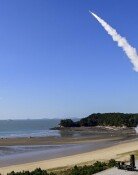`History Committees Remain Despite Finished Tasks`
`History Committees Remain Despite Finished Tasks`
Posted April. 09, 2009 08:14,
Half of 16 leading domestic committees on history remain in existence even after completing their major tasks since their activities are not restricted by deadlines.
Eight committees including one on rewarding those related to the 1980 Gwangju pro-democracy movement have completed their missions but have reviewed no relevant cases for the past year.
This was according to data compiled over the past five years, including meetings hosted by committee chairmen, budget, personnel and major activities of the 16 committees released by ruling Grand National Party lawmaker Lee Beom-rae.
Critics blast the committees as a waste of state budget since they retain their staff and large-scale offices despite a significant reduction in tasks. Though each committee has different duties, major tasks include investigating relevant cases, deliberating on related people, and providing rewards.
Eight committees dealing with history have completed their missions but continue to hold commemorative events and publish magazines instead of dismantling.
The Board of Audit and Inspection suggested that the history committees should be integrated or abolished. In a report by the boards administrative committee in April last year, the government watchdog recommended that 13 history committees with overlapping functions be integrated into one committee.
Most committees have yet to be dismantled, however, with some even expanding their terms by revising laws.
Lee Chang-won, a professor of public administration at Hansung University in Seoul, said, The concept of a sunset law should be applied to committees. When establishing committees, the goals should be clarified. When the goals are achieved, the committees should be abolished."
"Since committees are temporary organizations, they should be operated only when existing organizations have difficulty handling all given work.
constant25@donga.com







